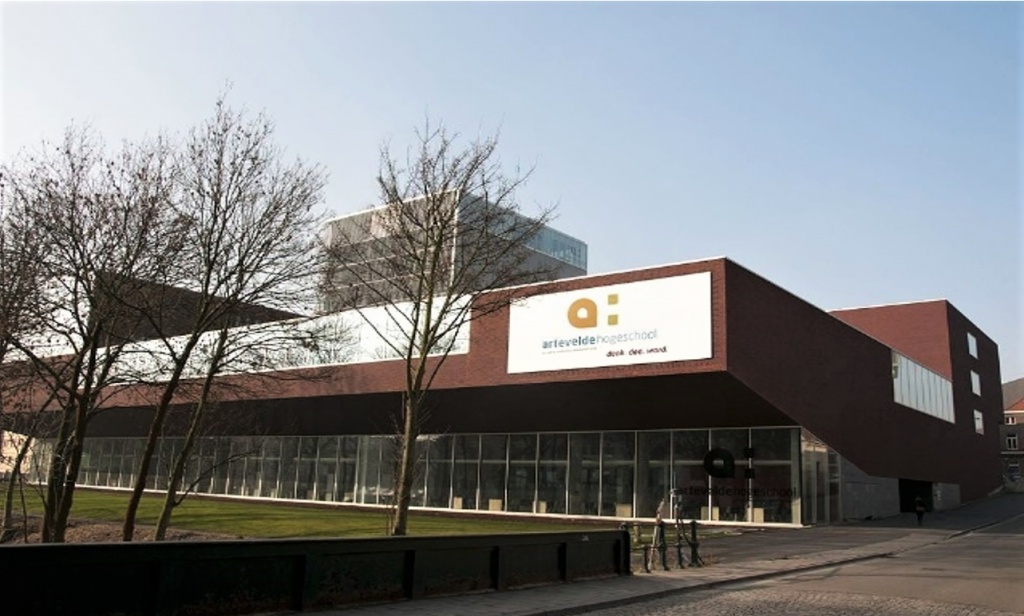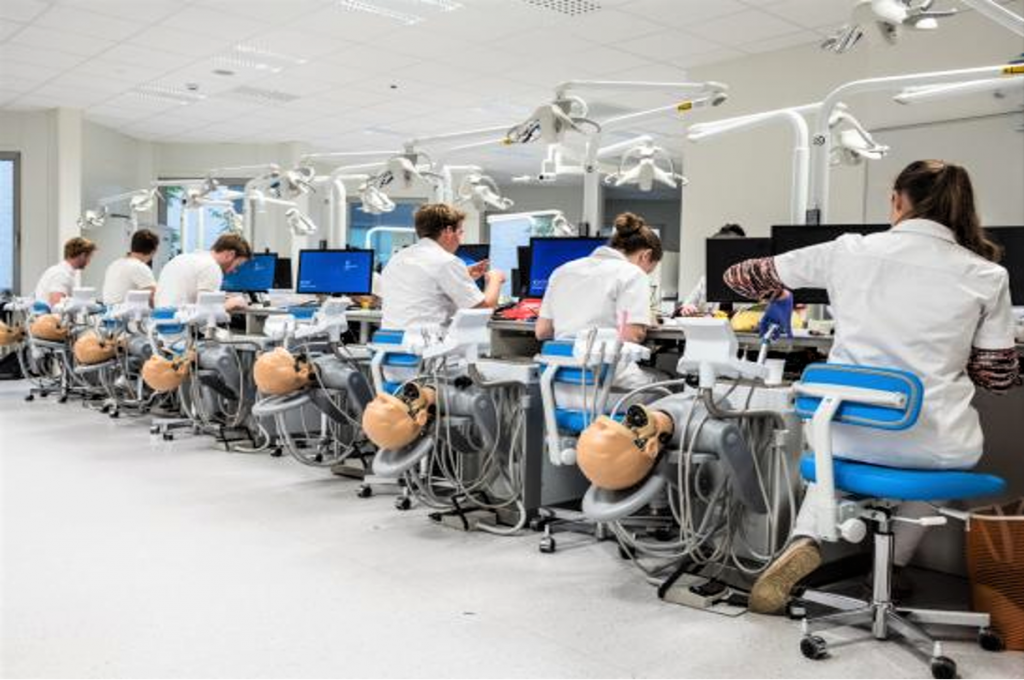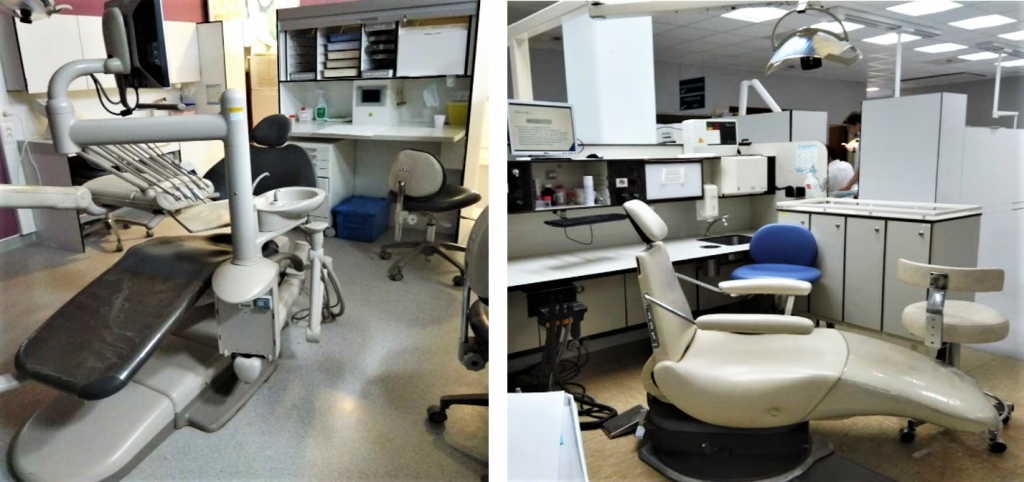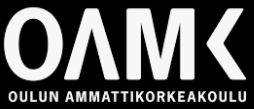Oulu University of Applied Sciences’ (OUAS) degree programme in dental health care had the opportunity to welcome four exchange students to Oulu in the spring of 2023. Here you will find a short description of the education of dental hygienists in Ghent, Oulu and Verona. We have also included some examples and notes on different ways to organize practical training, existing facilities and possibilities for learning in Finland, Belgium and Italy.
OUAS has numerous international partners, University of Verona being one of them. The cooperation between our degree programmes began in the early 2000s. Artevelde Hogeschool is one of our newest partners since our cooperation started in 2018. Both institutes are reliable and good partners with competent, active, and initiative incoming students.
This spring we received four 3rd year students of dental hygiene, Anna Paviglianiti and Carolina Moglie from Verona together with Louise van Hoorde and Robbe Peeters from Ghent. Once again, besides ”Finnish survival” or other available courses, their aim was to practice with us − to gain new perspectives, experiences and competences as well as share their knowledge, expertise and thoughts with us. Anna and Carolina practiced with Finnish students in Dentopolis dental clinic for three months, Louise and Robbe for two months’ time, until April.
Content of the education in Oulu
In Finland it takes 3,5 years to become a dental hygienist. The extent of the studies is 210 ECTS and one third of them consist of practical training. Besides practicing and basic studies in social and health care our curriculum is divided e.g. into studies of oral health care, health promotion, research, development and management and thesis. Although the content of our studies is quite like other universities, the scope of studies varies. In European countries, e.g. Belgium and Italy, it is 180 ECTS.
In Oulu students of dental hygiene implement their professional training mainly in Dentopolis dental clinic and municipal health centres, together with visits to hospitals, nursing homes, schools etc. Besides clinical practicing itself, our activities in Dentopolis consist of several laborations and workshops during studies.
Dentopolis as a learning environment
Dentopolis is Oulu’s ”hub for dental and oral health care”, introduced in 2017. Currently all dental care organized by the city of Oulu as well as the practicing of students of dentistry and dental hygiene takes place there. OUAS own dental clinic together with 15 dental units is situated in Dentopolis 3rd floor, where also students of dentistry practice. As we are a part of ”Educational dental clinic” of the city of Oulu, we also have possibility for patient’s interdisciplinary dental care. All in all, it is a modern, versatile and great community to study and work in.
Until the end of 2016 we practiced at our own, campus Kontinkangas clinic. Before moving to Dentopolis we acquired several dental units and other equipment with project funding from EAKR. The favourable development has continued and now we can quite proudly say that all our units, devices and instruments are high quality, as well as surrounding facilities and conditions. (Pictures 1‒3.)

Next our exchange students Anna Paviglianiti and Carolina Moglie from University of Verona together with Louise van Hoorde and Robbe Peeters from Artevelde Hogeschool will describe their education. We’ll learn, how the practical training is organised at their home universities as well as hear some of their findings and experiences in Oulu.
Being a dental hygienist student at the University of Verona
In Italy the education of dental hygiene started in 1996. The register of health professions was introduced in 2018, also including the profession of dental hygienist. The main location of our university is Verona, but we attend lessons and exams mainly in Rovereto. Our studies last for three years with the student intake of 20 per year. At the end of semesters we have periods for internship to put into practice what we have learned. Before accessing the internship, it is mandatory to attend the laborations with phantom teeth.
During the first year’s first semester we have basic studies such as anatomy, biology, chemistry and physics. In the second semester we begin with some subjects related to the health profession and dental hygiene, also having our first practical internship. For the first four weeks we focus on assisting a dentist or dental hygienist, also being responsible for patients’ motivating and guiding oral hygiene. During the last three weeks we practice in a sterilization department of a hospital.
Our specific subjects’ studies begin in the second year focusing on periodontology and the paediatric field. We also start with the phantoms (pictures 4‒5), e.g. using ultrasounds and applying first sealings. The second-year internships take place in various public clinics with one or two students per clinic. The main clinic is in Ala where our teachers work and where we take practical exams at the end of the year. Also an observational internship of two weeks is carried out in a private clinic.

In the third and final year the subjects of our studies are mainly peri-implantology, prosthetics and the administrative/legal management of our profession. This time our internship lasts for four months as we learn the use of manual instruments and deepen the techniques of working with ultrasound. At the end of the third year we are able to develop a treatment plan that meets patients’ needs as well as manage their care in our area of responsibility. We graduate after completing our thesis.
How we operate in Artevelde University of Applied Sciences?
Artevelde University of Applied Sciences (picture 6) is in Ghent, Belgium. It’s one of the three universities in Belgium where you study dental health care. Two Universities are located in the Flemish part of Belgium and one is located in Wallonia. The occupation is relatively new in Belgium. The first dental hygienists graduated in 2018 after three years of studying.

Our practical training starts in the first year with phantom teeth and manual instruments (picture 7). Unlike here in Oulu, we have separate facilities for laboratories and patient care. In the second semester we practice e.g. the rubberdam placement, use of the ultrasonic and the manual instruments with phantom teeth. During the first year we also have an observational internship of 20 hours in a private clinic.

In the second year we start practicing with patients. Our internship is in the dental clinic (pictures 8‒9), which looks like Dentopolis but older. During our internship in the dental clinic our tutors check every step of the process.
Big difference between Ghent and Oulu is that we only have one appointment for the patient. During the appointment we have two hours for the checkup and the treatment of all teeth. Depending on the patient’s dental hygiene we also give prevention instructions.
In the first semester we practice at the dental clinic for 80 hours and in the second semester for 96 hours. During the practicing we also have the opportunity to assist dental student and go to schools to provide oral health guidance.

Our third-year internship takes place in private practice: one semester with general dentist and another with periodontist or orthodontist. You can choose the order, as long as it is 230 hours per semester. During this year we also visit elderly people’s homes where we do checkups and treatment as well as give prevention instructions.
Some experiences in Dentopolis
The number of appointments in Oulu differs from Ghent. In Oulu we start the treatment with a checkup and after that there’s usually one or several appointments for the instrumentation depending on patient’s need. If necessary, the patient can also come back for follow-up to be re-examined that the gingival tissues have healed properly. It is good from both the patient’s and the student’s point of view.
Another difference besides treating patients is that in Oulu there is a wide variety of manual instruments and ultrasonic tips. I loved to work with the micro scaler and curette. We have also learned some new measures here. For example use of different intraoral cameras, placement of dental jewellery or bleaching teeth are something we haven’t practiced in Belgium. A calm environment in Dentopolis reduces stress and helps to focus on patient care better.
Thoughts on Finland and exchange period
Another thing I like in Finland is the country itself. Compared to Belgium, Finland is ten times bigger, but Belgium has two times more inhabitants. Finland has a beautiful landscape, nature, forests, lakes, snow and hills. The number of things you can do in Finland is endless. During my stay here I’ve done a lot of things from cross-country skiing, ice swimming and hiking to visiting Santa Claus. It’s so fun and beautiful here, the two months I’ve been here feels like two weeks.
The people. During my internship I’ve met a lot of people from all around the world and of course a lot of Finnish people too. At the beginning they weren’t that talkative but when we got to know each other we could have talked the whole day. I’ve had an amazing time with them during my internship and also after it. I’m glad being here and going to miss this a lot.
Implementation of the training
There’s a lot of similarities between dental hygienists’ education and training in Ghent, Oulu and Verona. The importance of practical training is emphasised in our universities, althought there are different ways of organising the training and prior workshops. The scope of studies varies. In Finland the extent of the studies is 210 ECTS, but in many European countries, e.g. Belgium, Italy, Sweden and Norway it is 180 ECTS.
During spring 2023 we had a chance to practice together with four exchange students in Dentopolis dental clinic. We noticed that there’s certain differences between our facilities as well as contents and organisation of workshops and practicing. Dentopolis was found modern and well-equipped, calm learning environment with plenty of time and possibilities for individual learning experience.
Participation in an exchange period is a great way for meeting colleagues from other countries and comparing the contents and organisation of education, getting fresh perspectives and strengthening personal competences. Not forgetting getting to know the country and it’s cultural characteristics.
Meeri Oinonen
Lecturer
School of Wellbeing and Culture
Oulu University of Applied Sciences
Carolina Moglie
Student of Dental Hygiene
University of Verona
Anna Paviglianiti
Student of Dental Hygiene
University of Verona
Robbe Peeters
Student of Dental Hygiene
Artevelde University of Applied Sciences
Louise van Hoorde
Student of Dental Hygiene
Artevelde University of Applied Sciences

Vastaa
Sinun täytyy kirjautua sisään kommentoidaksesi.